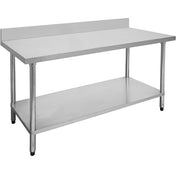Starting a restaurant is a marathon, not a sprint. The real work and the real costs begin long before your first customer walks through the door. While it’s easy to focus on the fit-out and menu, it’s the hidden costs of compliance that can derail a new venture.
Consider the café group that was ready for their soft opening, only to learn they needed to spend an unplanned $15,000 retrofitting grease traps and sinks. That’s a painful, last-minute lesson.
This guide is your blueprint to avoid those surprises. We'll walk you through the essential costs, mandatory permits, and strategic decisions required to launch your hospitality business in Australia with your eyes wide open.
Step 1: Laying the Financial Foundation
In a competitive market, a solid business plan isn't just a document for the bank it's your roadmap to survival.
Business Planning & Cash Flow
Before you even think about a lease, you need to master your numbers. Your single most important financial asset is a cash buffer. Most new venues don't turn a profit on day one, so you need enough capital to cover at least 3–6 months of operating expenses while you build momentum.
Securing Financing
Unless you're self-funding, you'll need capital. Here are the most common paths in Australia:
- Bank Loans: The traditional route. Expect to present a bulletproof business plan and cash flow forecast. You may also need to offer personal assets as security.
- Private Investors: A popular option in hospitality. Investors provide capital in exchange for a percentage of profits or an ownership stake.
- Crowdfunding: A modern approach that can generate capital while creating pre-launch buzz and a loyal customer base.
- Government Grants: Always check for state and federal small business grants, especially if you're opening in a regional area or have an innovative concept.
Step 2: The Non-Negotiable Compliance Checklist
Navigating council and state approvals is a critical step that almost always takes longer than you think. Start early and be meticulous.
Planning and Premises Approval
Opening a restaurant involves changing the commercial use of a property, which triggers a series of required approvals.
- Planning Permit: Required by your local council for land use, signage, or even a reduction in required car parking. You may need to provide technical documents like traffic or waste management reports.
- Building Permit: Essential for any structural changes or renovations to ensure you meet construction and safety standards.
- Development Application (DA): In states like NSW, this is a major hurdle requiring extensive documentation, including architectural drawings, waste management plans, and acoustic reports.
- Occupancy Permit: The final sign-off from the council confirming your venue is safe for the public.
Food, Health, and Operational Licensing
- Food Act Registration: Mandatory for all food businesses. You must register with your local council and prove compliance with food safety standards.
- Food Safety Supervisor (FSS): You are legally required to have a certified FSS on staff and reasonably available at all times.
- Liquor License: If you plan to serve alcohol, this is a must. The application process is thorough and can easily take 3 months or more to finalise.
- Other Permits: Don't forget permits for outdoor dining or music licenses (APRA AMCOS).
Employment Compliance
As an employer, the buck stops with you. Ensure you are compliant with:
- Financials: PAYG tax, superannuation (11% as of 2025), and WorkCover insurance are mandatory.
- Employment Law: Your team is covered by the National Employment Standards (NES) and the Restaurant Industry Award. Understand your obligations.
- Overseas Workers: Hiring international staff is a complex legal process. You typically need to become an approved Standard Business Sponsor and prove a genuine need for the role.
Step 3: Nailing Your Location & Operations
Your physical space and digital systems are the engine room of your restaurant.
Site Selection and Kitchen Design
Your premises must be designed for efficiency and safety. The layout should create a logical workflow that minimises cross-contamination—for example, keeping raw food prep areas separate from the final dispatch area.
Key considerations include:
- Surfaces: Use non-porous materials like stainless steel that are impervious to grease and easy to sanitise.
- Utilities: Ensure you have an adequate supply of potable (drinkable) water and a wastewater system that can handle a commercial load.
- Ventilation: Proper mechanical ventilation is crucial to remove fumes, prevent grease build-up, and control pests.
Commercial Lease Negotiation
This is where you need a lawyer. Full stop. A commercial lease is a binding contract full of potential pitfalls.
- Lease Incentives: Landlords often offer rent-free periods or fit-out contributions. Get these documented.
- Clawback Clauses: This is critical. If you accept an incentive, be aware of "clawback" clauses that could force you to repay it if you break the lease early.
Essential Technology: Your POS System
A reliable Point of Sale (POS) system is the central nervous system of your front-of-house. Don't just look at the monthly fee; consider features, ease of use, and contract lock-ins.
Step 4: Building Your Team & Launching with a Bang
A great concept is nothing without a great team and a solid launch strategy.
Hiring in Australia
Bring key players like your head chef and venue manager on board several weeks before opening.
- Compliance is Key: Ensure every staff member serving alcohol has a current RSA certification.
-
Contracts & Records: Use compliant employment contracts and keep meticulous records of payslips, superannuation, and visa statuses for any international staff.
Pre-Launch Marketing Plan
Your restaurant needs to exist online before it exists in the real world.
- Digital Footprint: Budget for professional branding, a simple website, and active social media accounts. You must be on Instagram and Google Maps before you open.
- Launch Events: Plan for a "soft opening" for friends and family to stress-test your systems, followed by a grand opening event to generate buzz.
- Reservations: Get a reliable booking system in place from day one to manage demand and start building your customer database.
The Final Word
Launching a successful restaurant in Australia comes down to diligent preparation. By mastering your numbers, navigating compliance methodically, and investing in the right systems, you move from simply having a dream to building a sustainable, profitable business.
Budget for the unknown, get expert legal and financial advice, and remember that a strong foundation is your best insurance against the challenges ahead.





